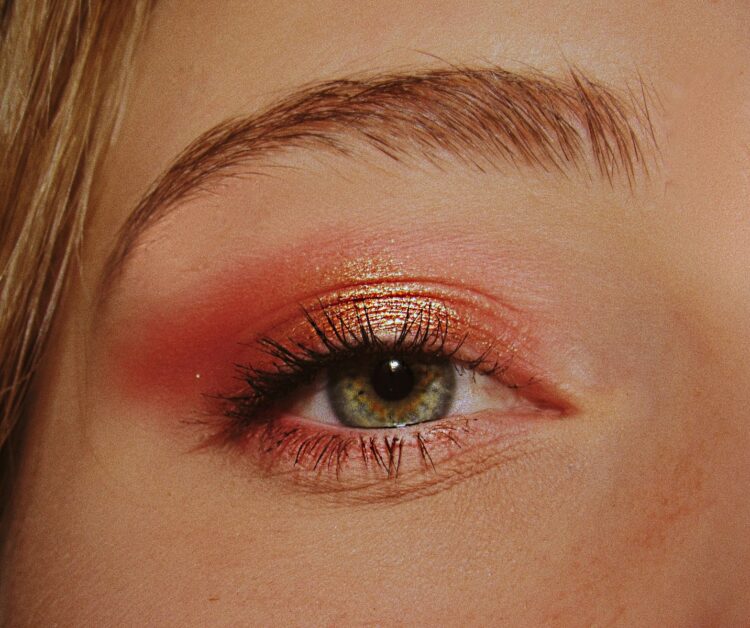
Some people know how to smile with their mouths while hiding a jab in their words. Fake compliments often come dressed up as kindness, but something about them feels off. They’re meant to sound sweet but leave you second-guessing yourself. If you’ve ever walked away from a “nice” comment feeling weird or unsettled, these are the kinds of lines you were likely dealing with.
“You’re so brave to wear that.”

This might seem like they’re admiring your bold style, but read between the lines—it’s not always kindness. They’re suggesting your outfit is strange or attention-grabbing in a way they wouldn’t dare try. Instead of saying you look good or stylish, they’re pointing out that you’re doing something risky. It’s a sneaky way of criticizing your appearance while pretending they’re impressed by your confidence.
“You look so much better with makeup on.”

A compliment about makeup should never come with the message that you need it to look attractive. When someone says this, they’re not admiring your effort—they’re saying your natural face isn’t enough. It’s one thing to praise a makeup look, but saying you’re better with it on sends a message that your true self is lacking. That’s not flattery—it’s a dig.
“Wow, you’re actually smart!”

Adding the word “actually” turns a compliment into a surprise insult. It means they didn’t expect you to be smart, and now that you are, it’s shocking. This kind of fake praise reveals their low expectations of you, whether based on your looks, job, or background. It’s not celebrating your intelligence—it’s exposing their bias in a way that sounds more rude than respectful.
“I wish I didn’t care what people think, like you.”

This line pretends to admire your carefree attitude, but it usually carries a hidden insult. It suggests you act without thinking, dress oddly, or speak too freely. Instead of seeing you as confident, they’re mocking your boldness while masking it with a smile. It’s a subtle way of saying you’re socially clueless, not fearless, and that’s not a real compliment at all.
“You’re pretty for someone your size.”

This is one of the most common and offensive fake compliments. It sounds like praise, but it’s loaded with judgment. By adding “for your size,” they’re saying beauty isn’t usually expected from people who look like you. Instead of simply saying you’re pretty, they attach a condition to it (which highlights the bias they hold). Beauty doesn’t need a disclaimer or a backhanded compliment.
“You’re not like other girls/guys.”

At first, it feels good to be told you’re unique. But this line usually means they’re placing you on a pedestal by putting others down. It’s not about your qualities, but more about separating you to feed their ego. It also implies that other girls or guys are somehow lesser, and that’s not fair to you or them. Real compliments don’t need to compare you to anyone.
“You clean up well.”

What they’re really saying is you don’t usually look good, but tonight you managed to pull it together. It’s a dig at your regular appearance, hidden behind a smile. If they genuinely thought you looked nice, they could say that. This kind of comment is wrapped in sarcasm and often makes you feel self-conscious rather than confident—definitely not the mark of a real compliment.
“You’re so real. I could never wear that.”

Calling you “real” might seem positive, but it’s often code for “too bold” or “not polished.” When followed by “I could never wear that,” it becomes clear they think your style is odd or risky. They’re pretending to admire your confidence while quietly judging your choices. If someone truly liked your outfit or your personality, they’d say so—without turning it into a warning.
“You’re lucky you don’t care about looks.”

This one stings because it sounds like they’re complimenting your self-acceptance, but they’re actually calling you unattractive. Saying you’re lucky not to care implies you don’t try, don’t look good, and don’t even know it. It’s passive-aggressive and meant to make you second-guess yourself. If someone really valued your confidence or your style, they wouldn’t need to disguise their judgment in a fake compliment.
“It’s so inspiring how you don’t care what people say.”

This comment is meant to sound empowering, but it can come off like mockery. They’re often pointing out that you’re bold, loud, or different—but not necessarily in a good way. The tone usually implies that you’re out of step with what’s “normal.” Instead of admiring your courage, they’re trying to make you question whether you’ve gone too far. That’s not uplifting—it’s unsettling.
“You’ve lost weight. You look amazing now!”

People often mean well when they say this, but it suggests you didn’t look good before. It ties your beauty to your body size and reinforces the idea that thinner equals better. This kind of comment can make people feel like they were only worth noticing after a physical change. If someone truly wants to praise your appearance, they should do so without attaching it to your weight.
“I don’t know how you do it. I’d never be able to handle your life.”

This is framed as admiration, but it comes off as pity. The phrase makes it sound like your life is very chaotic, overwhelming, or beneath their standard. Instead of showing respect, it paints your daily reality as something to be avoided. If someone really values your strength or resilience, they won’t make you feel like your life is something they wouldn’t want to live.
“I wish I could be as chill as you, even if it means not caring about everything.”

This comment tries to pass off admiration for your calmness, but ends with a subtle jab. It hints that you’re too relaxed, unmotivated, or careless. Instead of saying you have a peaceful energy, they imply you lack drive or responsibility. That’s not a compliment—it’s a judgment in disguise. True compliments celebrate who you are without dragging you down in the same sentence.
“You’re way too good for that job/relationship/life.”

It sounds like a compliment, but it quietly tears down something you care about. Whether they’re talking about your partner, your job, or your lifestyle, they’re suggesting you’ve settled or made poor choices. Instead of supporting your decisions, they’re planting doubt while pretending to lift you up. If someone truly believes in you, they won’t try to make your life feel small to make you feel bigger.
“You’re surprisingly talented.”

When someone throws in the word “surprisingly,” they’re admitting they didn’t expect much. It might sound like they’re impressed, but the surprise shows they had low expectations to begin with. That’s not a compliment—it’s a reminder that they underestimated you. Real praise doesn’t come with shock or disbelief; it simply celebrates what you’ve done without turning it into a plot twist.

